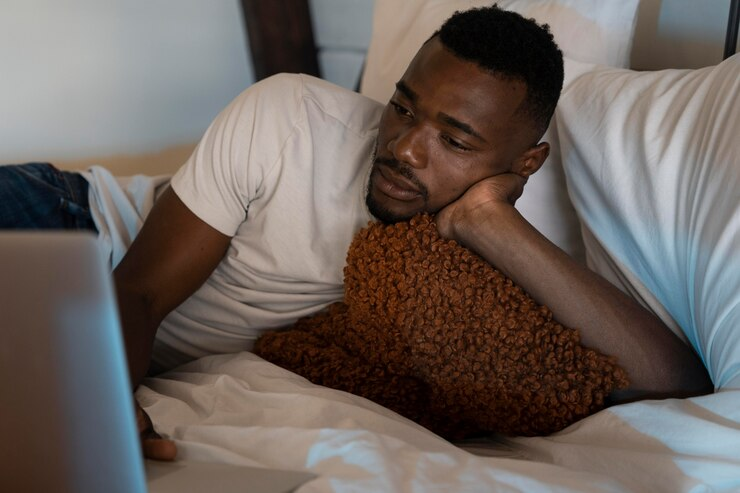Technology has become an integral part of our lives, revolutionizing the way we communicate, work, and entertain ourselves. However, the increasing use of technology, particularly in the form of smartphones, tablets, and computers, has had a significant impact on our sleep patterns. In South Africa, where technology adoption is rapidly growing, it is crucial to understand the effects of technology on sleep and explore ways to maintain healthy sleep habits in a digital age.
- Disruption of the Circadian Rhythm: Exposure to artificial light emitted by electronic devices can disrupt the body’s natural circadian rhythm, which regulates sleep-wake cycles. The blue light emitted by screens inhibits the production of melatonin, a hormone that promotes sleep. Using electronic devices, especially close to bedtime, can delay the onset of sleep and lead to difficulties falling asleep.
To mitigate this, South Africans should establish a “digital curfew” by avoiding screen time at least one hour before bed. This allows the body to wind down and encourages the natural release of melatonin. Instead of engaging with screens, engage in relaxing activities such as reading a book, listening to soothing music, or practicing meditation.
- Sleep Disturbances and Reduced Sleep Quality: The use of technology before bed can contribute to sleep disturbances and reduced sleep quality. Checking emails, scrolling through social media feeds, or watching stimulating content can stimulate the mind and make it harder to relax and fall asleep. Notifications from smartphones and tablets can also interrupt sleep if they cause the device to light up or emit sounds during the night.
To combat this, South Africans should adopt healthy sleep hygiene practices. Keep electronic devices out of the bedroom or at least out of reach during sleep hours. Consider implementing a “no phones in the bedroom” policy to avoid the temptation of late-night browsing. Use features like “Do Not Disturb” mode to silence notifications during sleep hours and create a distraction-free sleep environment.
- Increased Psychological Stimulation: The content we consume through technology can have a profound impact on our mental well-being and sleep. Engaging with stimulating or distressing content before bed, such as intense video games or emotionally charged social media posts, can activate the mind and increase stress levels, making it difficult to relax and fall asleep.
To promote better sleep, South Africans should prioritize their mental health and be mindful of the content they consume. Limit exposure to negative or stressful media before bed and choose more calming and positive content. Consider using smartphone apps or features that track and limit screen time, helping you manage and reduce excessive use.
- Social Jetlag and Sleep Debt: Technology has also contributed to a phenomenon known as “social jetlag” in South Africa. With the ability to connect with people around the world at any time, individuals may find themselves staying up late to interact with friends or family in different time zones. This can lead to irregular sleep schedules and accumulated sleep debt, which can have detrimental effects on overall health and well-being.
To address social jetlag, it is essential to prioritize regular sleep patterns. Establish a consistent sleep schedule, even on weekends, to ensure an adequate amount of sleep. Communicate with loved ones in different time zones and find a balance that allows for meaningful interactions without compromising your sleep needs.










